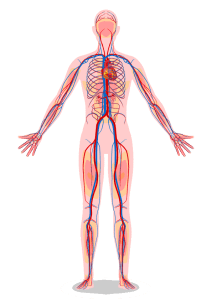Vascular Services
Our expert vascular surgeon, Dr. Laurence Young, offers you a specialized approach in diagnosis and treatment of any condition that affects the body’s blood vessels. This includes arteries, veins, and lymphatic system, part of the circulatory system that helps fight infection and removes fluid from tissues.
Because blood vessel conditions and diseases may involve more than one of the body’s systems at a time, a team approach ensures comprehensive care of patients with both routine and complex conditions. With a skilled team of recognized experts, we bring together a vascular surgeon, interventional radiologists, wound care specialists, and specially trained nursing staff for experience in blood vessel diagnosis and expert treatment.


